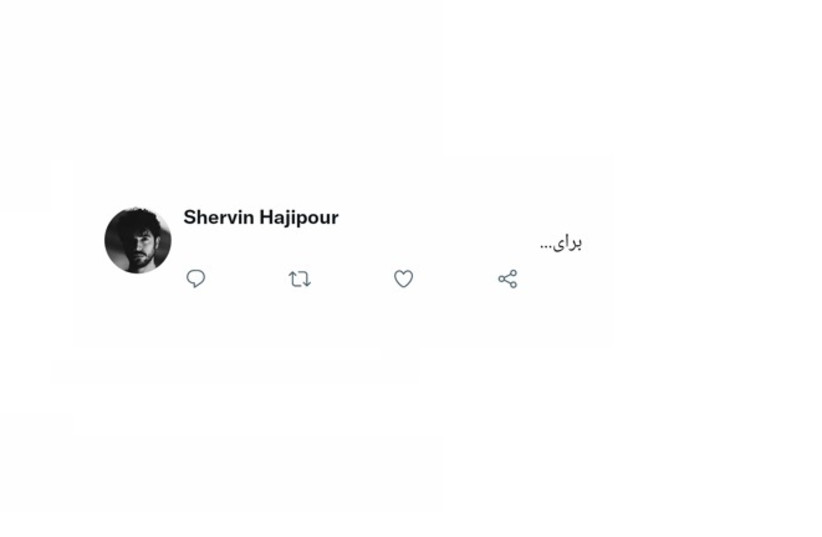Iranian singer who wrote anthem of Mahsa Amini protests sentenced to 3 years in prison
Shervin Hajipour, the Iranian singer whose song Baraye (“For”) became an anthem of the “Women, Life, Liberty” protests in 2022, was sentenced on Friday to three years and eight months in prison and ordered to write a song against the US.
The singer was sentenced to eight months in prison for publishing “propaganda against the regime” and three years for “inciting people to disturbances with the intention of disrupting the security of the country.”
Hajipour was also ordered to publish a list of the “achievements of the [Islamic] Revolution” on social media, as well as 30-page summaries of the book “Woman And Her Rights In Islam” by Ayatollah Morteza Motahari and of “Woman in the Mirror of Beauty and Glory” by Javadi Amoli. He also was ordered to take part in a course on “behavioral skills and knowledge in the field of art.”
Hajipour published a photo of the sentence on his Instagram account, thanking his lawyers for their efforts and stressing that he would not publish the name of the judge and prosecutor of his case so that they wouldn’t be attacked or threatened “because insults and threats are not in the religion of humanity.”

“One day we will understand each other, until that day,” concluded Hajipour.
According to the document published by the singer, the court said that Hajipour “did not express remorse for his actions” and that “the guidance of experts has not been effective in correcting the defendant’s behavior.”
The anthem of the ‘Woman, Life, Liberty’ protests
In February of last year, Hajipour won the Special Merit Award for Best Song For Social Change for his song Baraye at the GRAMMYs.
In 2022, protests swept Iran after Mahsa Amini, a Kurdish-Iranian woman, was arrested and beaten by “morality police” officers in Tehran, collapsing and dying due to the beating shortly afterward.
The protests, known as the “Woman, Life, Liberty” (“Jin, Jiyan, Azadî” in Kurdish) protests, drew the world’s attention, with videos showing demonstrators openly clashing with Iranian security forces in an unprecedented way. In several videos shared online, armed security forces could be seen fleeing as masses of protesters confronted their attempts to suppress the demonstrations.
In August, the commander-in-chief of Iran’s Islamic Revolutionary Guard Corps (IRGC), Hossein Salami, called the protests “the strongest, most dangerous, and most serious” such demonstrations in the regime’s history.
Hajipour’s song Baraye features a series of tweets that were published by Iranians during the protests, with the word “for” before parts of each text. The song ends “For man, homeland, prosperity. For the girl who wished she was a boy. For Woman, Life, Freedom. For freedom.”





Comments are closed.